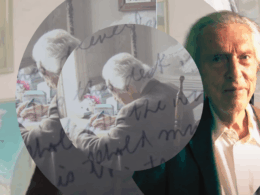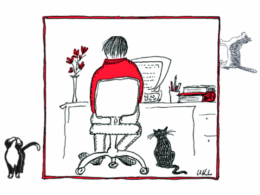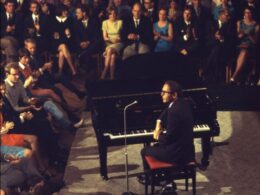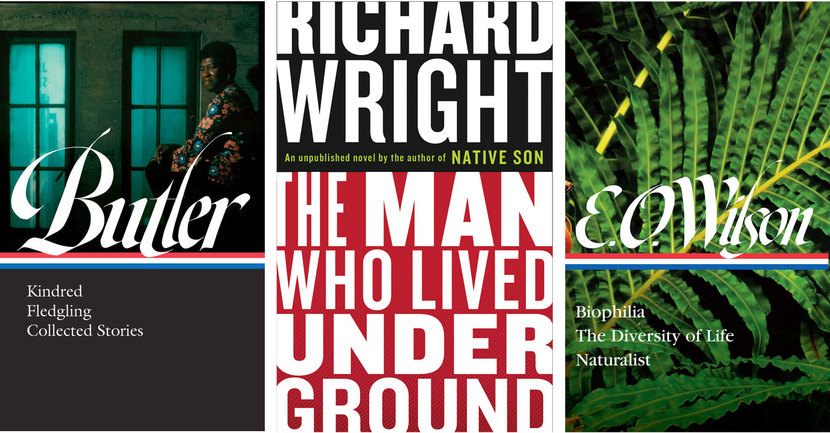
Library of America’s slate of eight offerings for the first half of 2021 includes three new writers in the LOA series, among them our third living writer (joining Wendell Berry and Joan Didion), three returning favorites, a landmark anthology of radical feminist writings, and a never-before-seen novel about race and police violence from a major twentieth-century American writer.
Check out the list below for details about contents and publication dates for all of our Spring 2021 releases and scroll further down the page for a fuller description of each new book.
LIBRARY OF AMERICA SERIES
Octavia E. Butler
Kindred, Fledgling, Collected Stories
Gerry Canavan & Nisi Shawl, editors
Foreword by Nisi Shawl
Library of America #338 / ISBN 978-1-59853-675-1
January 2021
John Updike
Novels 1978–1984
Christopher Carduff, editor
The Coup • Rabbit Is Rich • The Witches of Eastwick
Library of America #339 / ISBN 978-1-59853-677-5
February 2021
Edward O. Wilson
Biophilia, The Diversity of Life, Naturalist
David Quammen, editor
Library of America #340 / ISBN 978-1-59853-679-9
March 2021
Joan Didion
The 1980s & 90s
David L. Ulin, editor
Salvador • Democracy • Miami • After Henry • The Last Thing He Wanted
Library of America #341 / ISBN 978-1-59853-683-6
April 2021
Jean Stafford
Complete Stories & Other Writings
Kathryn Davis, editor
Library of America #342 / ISBN 978-1-59853-682-9
April 2021
Donald Barthelme
Collected Stories
Charles McGrath, editor
Library of America #343 / ISBN 978-1-59853-684-3
May 2021
SPECIAL PUBLICATIONS
The Man Who Lived Underground
by Richard Wright
ISBN 978-1-59853-676-8
February 2021
Women’s Liberation! Feminist Writings That Inspired a Revolution, and Still Can
Alix Kates Shulman and Honor Moore, editors
ISBN 978-1-59853-678-2
March 2021
Library of America extends its commitment to the best, most groundbreaking works of science fiction with the first volume of the complete works of Octavia E. Butler, a writer who, like Ursula K. Le Guin, forever transformed the parameters of genre fiction in American literature. This inaugural volume opens with Butler’s best-known novel, the harrowing and incisive Kindred, in which a black woman who is married to a white man becomes mysteriously displaced in time, pulled back and forth between the present and the pre–Civil War past, where she finds herself enslaved on the plantation of a white ancestor. Harlan Ellison called Kindred “that rare magical artifact . . . the novel one returns to again and again.” It is joined here by Butler’s final novel, Fledgling, in which a vampire, imbued with human DNA from a black person, upends her society. Rounding out the volume are all nine of Butler’s published short stories, collected in one volume for the first time. Complete with a newly researched chronology of Butler’s life and helpful explanatory notes.
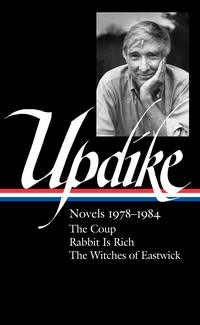
The third volume in our five-volume selected edition of the novels of John Updike includes three books: The Coup, one of Updike’s most outlandish satires, set in a fictional African nation; Rabbit Is Rich, the third, and many say best, novel starring his most famous protagonist; and the wildly popular The Witches of Eastwick, which was memorably adapted in the film starring Cher, Michelle Pfeiffer, Susan Sarandon, and Jack Nicholson. In The Coup, a surprising departure from his prior novels, Updike stages a withering take down of an array of targets, from American materialism and its baleful effects on the developing world to the follies of Cold War geopolitics and the fevered megalomania of the dictatorial mind. In Rabbit Is Rich, the third installment of the Rabbit tetralogy, we meet up with Harry Angstrom, now 46, dealing as best he can with the challenges and cares of midlife, a time when “you are carrying the world in a sense and yet it seems more out of control than ever.” In The Witches of Eastwick, Updike imagines a small New England town possessed by magic—at least as practiced by the female trio at its center who, freed from the burdens of their marriages, make common cause and unleash their whimsical witchcraft on Eastwick’s narrow-minded townspeople.
For more than fifty years, in more than thirty books, E. O. Wilson has transformed the way we see the natural world and our place in it. Trained as a myrmecologist (the branch of entomology focused on ants), Wilson has twice won the Pulitzer Prize for General Nonfiction, an unprecedented feat for a scientist, and his works have appeared on the bestseller list and the cover of Time. Now 91, he has been called, variously, “the father of sociobiology” and “the father of biodiversity,” reflecting the two major strains of his life’s work. With the acclaimed science and nature writer David Quammen, and in consultation with Wilson himself, Library of America presents the first installment of a two-volume edition gathering Wilson’s most essential works. Here, for the first time in one volume, are three classic books that illuminate the evolution and complex beauty of our imperiled ecosystems: the lyrical, thought-provoking essays of Biophilia, a field biologist’s reflections on the meanings of wilderness; the magisterial, dazzlingly informative The Diversity of Life: a sweeping tour of global biodiversity and a prophetic call to preserve the planet; and Wilson’s moving autobiography, Naturalist. With thirty-two pages of photographs and numerous illustrations, this collection will inspire wonder, curiosity, and love for a natural world now rapidly disappearing.
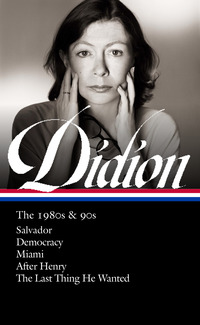
Library of America continues its definitive Joan Didion edition with a volume gathering her iconic reporting and novels of the 1980s and 1990s. Here are the remarkable essay collections with which Didion followed her celebrated Slouching Towards Bethlehem and The White Album: Salvador, a searing look at terror and Cold War politics in the Central American civil war of the early 1980s; Miami, a portrait not just of a city but of immigration, exile, the cocaine trade, and political violence; and After Henry, in which she reports on Patty Hearst, Nancy Reagan, the case of the Central Park Five, and the Los Angeles she once called home. Also included are her novels Democracy and The Last Thing He Wanted: fast-paced, deftly observed narratives of power, conspiracy, and corruption in American political life.
An artistic disciple of both Henry James and Mark Twain, Jean Stafford ranks with John Cheever, Eudora Welty, Peter Taylor, and Katherine Anne Porter as a twentieth-century master of the American short story. The companion to LOA’s well-received 2019 volume of Stafford’s novels, Complete Stories collects all forty-five stories Stafford published in her lifetime as well as the posthumous “Woden’s Day” and fifteen stories currently unavailable in print (twelve of which have never been published in book form). Set mainly in Germany, New England, Colorado, and New York City, her stories combine an exacting eye for physical detail with acute psychological insight, examining the lives of her mostly female protagonists as they seek a sense of place and belonging in the face of restlessness, dislocation, isolation, and powerlessness. The volume also includes A Mother in History (1966), Stafford’s controversial journalistic profile of Marguerite Oswald, the mother of President Kennedy’s assassin.
The short stories of Donald Barthelme, revered by the likes of Thomas Pynchon and George Saunders, are gems of invention and pathos that have dazzled and delighted readers since the 1960s. Here, for the first time, these essential stories are preserved as they were published in Barthelme’s original collections, beginning with Come Back, Dr. Caligari (1964), a book that made a generation of readers sit up and take notice. Collected Stories also includes the work that initially appeared in Barthelme’s two retrospective anthologies, Sixty and Forty, as well as a selection of uncollected stories, a discerning introduction by editor Charles McGrath and annotation that clarifies Barthelme’s freewheeling, wide-ranging allusions. This comprehensive gathering is a desert-island book for fans and the ideal introduction for new readers, who will discover Barthelme’s upside-down worlds that are nonetheless grounded in fundamental human truths, his scrambled visions of history that yield unexpected insights, and his genius for dialogue, parody, and collage, which was for him “the central principle of all art in the twentieth century.”
This February, some eighty years after it was first written, we will present The Man Who Lived Underground, a never-before-seen work by Richard Wright. Written in the same period as Native Son (1940) and Black Boy (1945), this explosive novel tells the story of Fred Daniels, a black man targeted by the police for a double murder he did not commit. Tortured until he confesses, Daniels then escapes, disappearing into the city’s sewer system on an underworld journey that marks him as a modern Orpheus or Odysseus. Wright thought The Man Who Lived Underground his finest work, but its graphic portrayal of police brutality may have made it untouchable for American publishers in the 1940s. Eventually he would distill the novel into a short story that was published in the anthology Cross-Section: A Collection of New American Writing in 1944 and then included in the posthumous collection Eight Men (1961). The result of extensive archival research, this landmark edition includes as an afterword an unpublished essay that Wright intended to accompany the novel, in which he wrote: “I have never written anything in my life that stemmed more from sheer inspiration, or executed any piece of writing in a deeper feeling of imaginative freedom, or expressed myself in a way that flowed more naturally from my own personal background, reading, experiences, and feelings than The Man Who Lived Underground.”
When Betty Friedan published The Feminine Mystique in 1963, it exploded into women’s consciousnesses like an atomic bomb. Soon the women’s rights movement, which had largely been focused on labor concerns since the passage of the Nineteenth Amendment in 1920, found new expression in a women’s liberation movement. Here, assembled for the first time in one place, are all the essential writings that made the movement, from “The Problem that Has No Name,” the opening chapter of The Feminine Mystique, to Susan Faludi’s 1991 book Backlash, which offered a mournful look back on the movement and the resentment it engendered in the 1980s. In between, the book gathers bold manifestos and fierce debates about sex and sexuality, birth control and abortion, housework, rape and sexual harassment, pornography, prostitution, and self-defense, and, fundamentally, about the ability of the movement to transcend racial and class boundaries by a brilliant array of writers and thinkers, including Toni Morrison, Gloria Steinem, Angela Davis, Susan Griffin, Pauli Murray, and more than ninety others. Each piece is expertly introduced with headnotes by writers and activists Alix Kates Shulman and Honor Moore, who experienced the revolutionary ferment of the 1960s and ’70s firsthand. With sixteen pages of photos.
